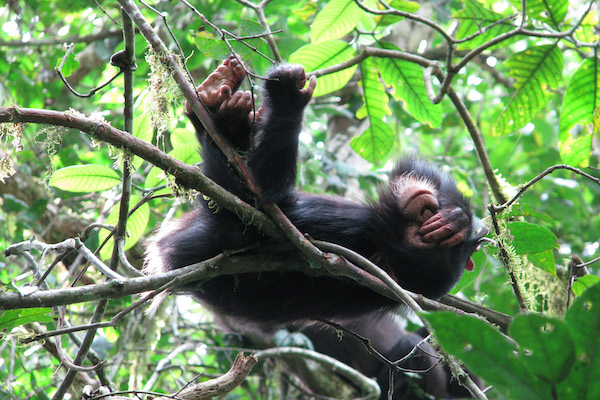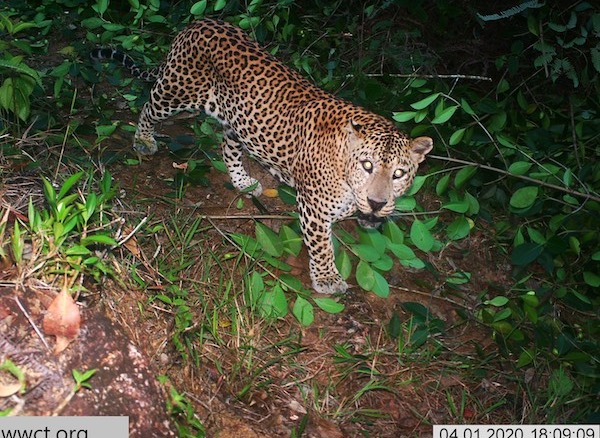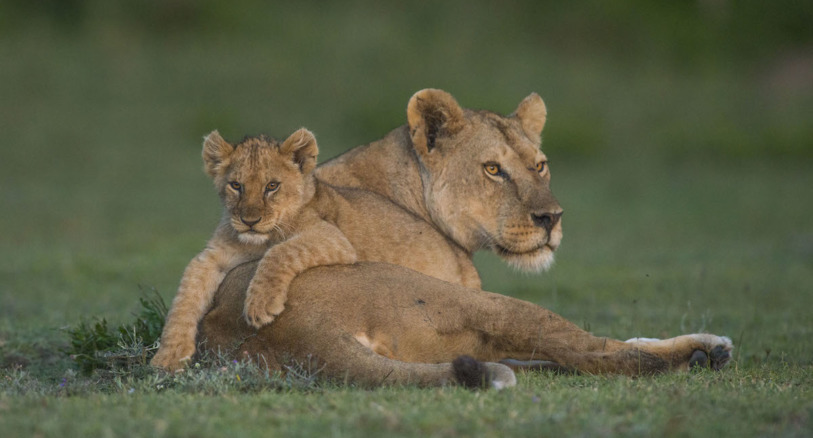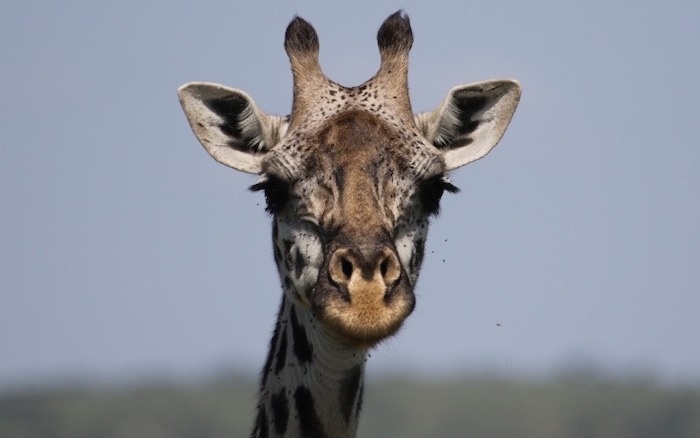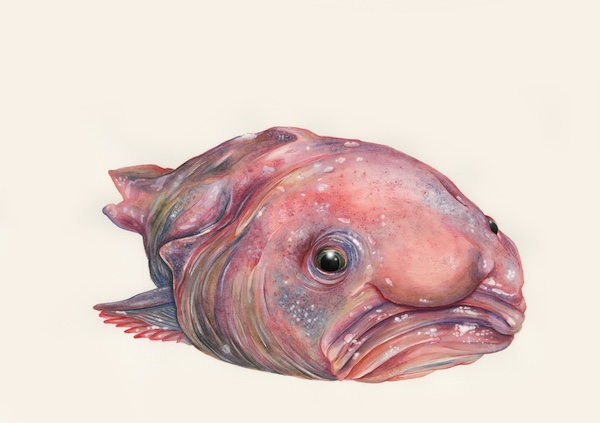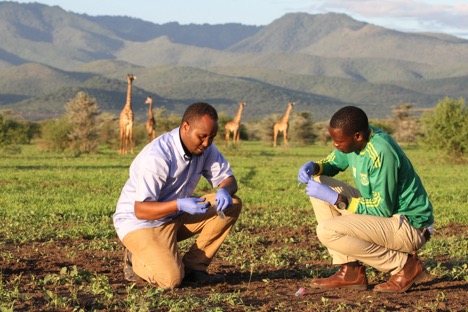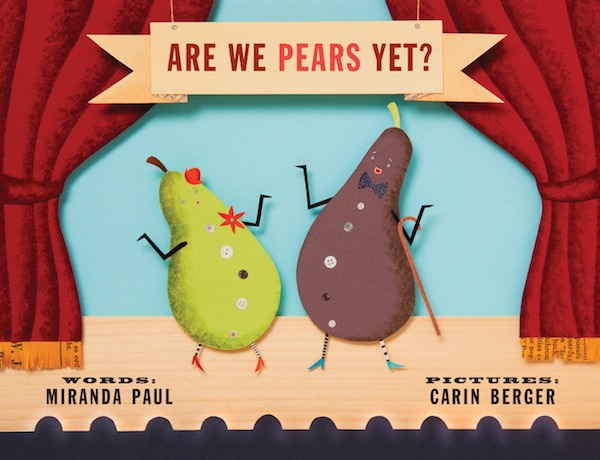
Book synopsis: Two seeds can’t wait to be pears, but growing takes time and patience in this funny and informative story. Written entirely in dialogue and staged as a play, Are We Pears Yet? is a clever and hilarious informational picture book that will make you look at growth cycles and fruit trees in a whole new way.
Published by Roaring Brook Press
A chat with
Author Miranda Paul!
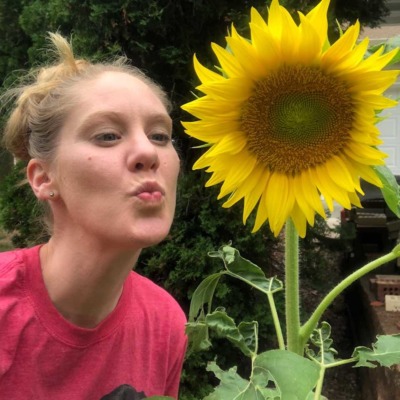
Miranda Paul is an award-winning author of more than a dozen fiction and nonfiction books for children. Miranda is a frequent presenter at schools around the world, and has presented at the Library of Congress Young Readers Center with environmental activist Isatou Ceesay. She is a co-founding member of We Need Diverse Books. More at MirandaPaul.com.
Doug Beetle: How did you decide on pears as the star of your story? Did any other fruits or vegetables audition for the part?
Miranda: No other fruits or veggies auditioned, but bears and chairs were given brief consideration! The idea behind the book Are We Pears Yet? came from my son, as we were gearing up for a road trip. He promised to ask “Are we there yet?” again and again, so I put a ban on that phrase.
Clever kid as he is, he began modifying the phrase with alternatives: “Are we bears yet? Are we chairs yet? Are we pears yet?” and I kept that last idea in my head on the drive home and proceeded to write it.
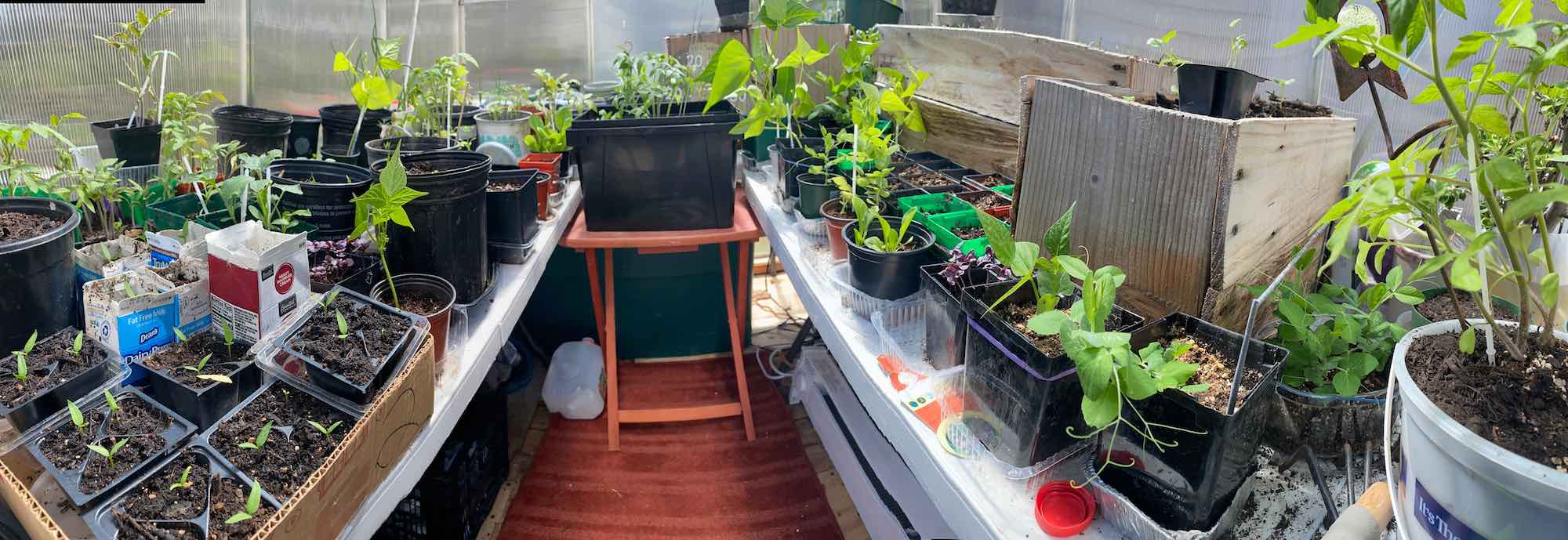
Doug Beetle: We have plants in every part of our lives – as food, as the material for our clothes and homes, in our yards, parks, and other landscapes. Yet several scientific studies show that most people do not really notice plants in the way that they notice animals.Why do you think that might be?
Miranda: Somehow, the nonfiction books of the past haven’t fully featured the dynamic and vibrant qualities of plants. They talk, move, and more!
Doug Beetle: What made you interested in writing about the life cycle of plants?
Miranda: I can’t say I always appreciated plants in the way I do now, but I remember vividly the first time I realized the notion that plants were incredible and most people weren’t taking any notice at all.
In my 9th grade English class, we read a poem called “Fueled” by Marcie Hans. It shows a rocket ship launching into the sky, and a seedling bursting through outer space — but no one claps for the plant.
It got me thinking about why we celebrate man-made technology or view it as superior to natural processes like plant growth. I distinctly remember this poem shaping my philosophy of life at age 14.
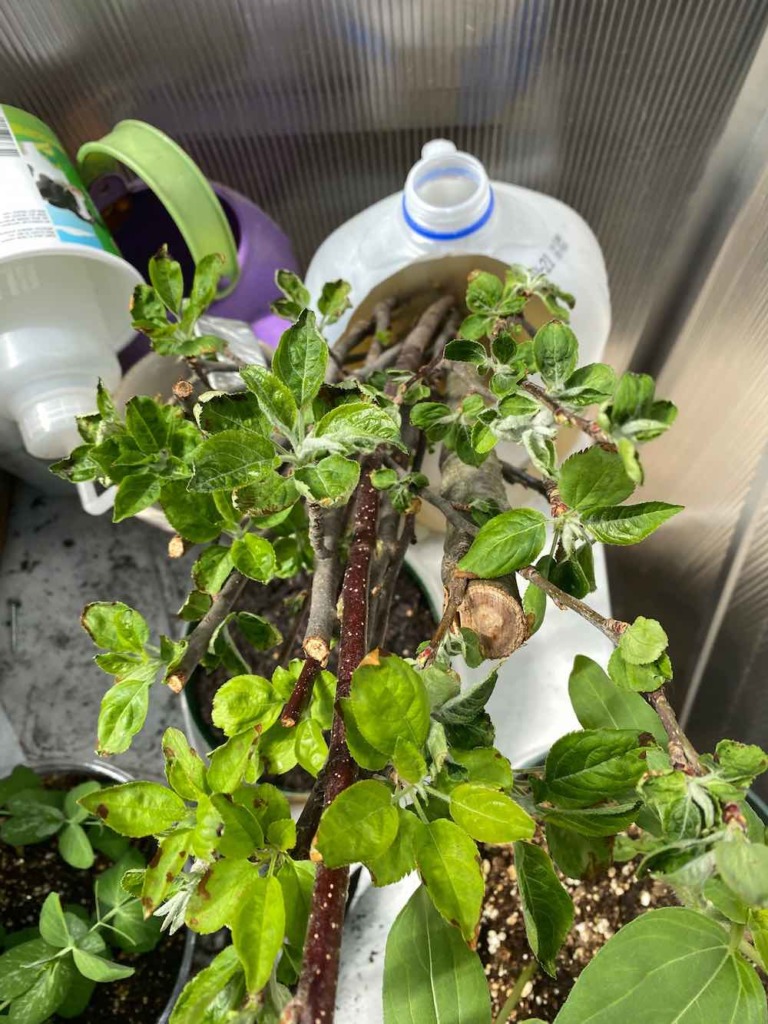
Doug Beetle: What gave you the idea to dramatize the plant life cycle as a stage play?
Miranda: Throughout my middle and high school years, theatre and performing arts were activities that helped me come out of my shy shell and build confidence to become the environmental advocate and community scientist I am today.
Because I conceived of this book as best written in all dialogue, it felt like a script and I wrote the manuscript that way.
My editor suggested we make it an actual stage play in the illustrations, and the illustrator agreed. Then I wrote the “credits” and “encore” you see in the back matter!
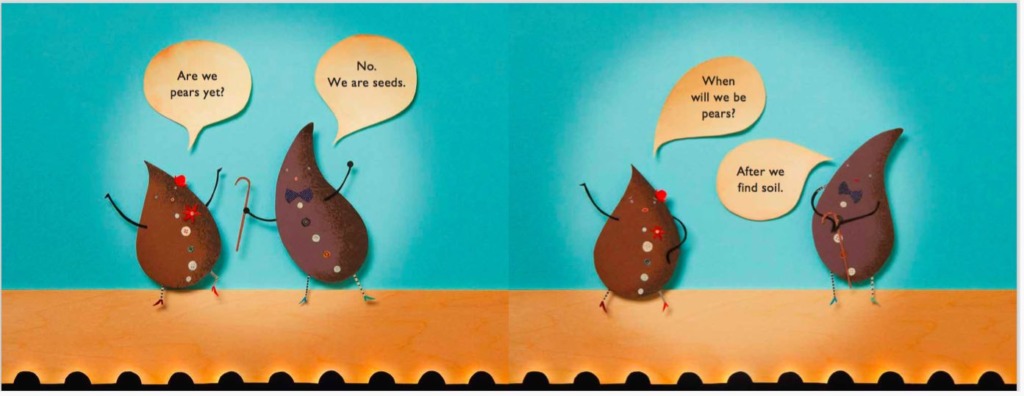
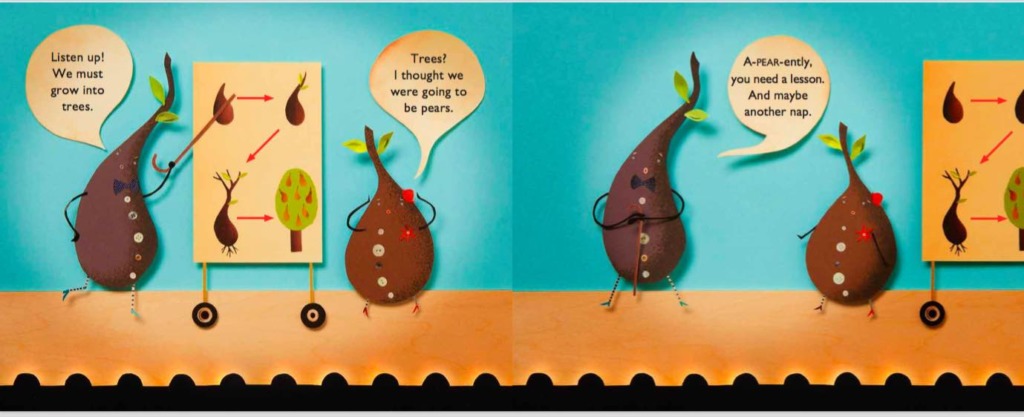
Interior spreads from the book Are We Pears Yet? Written by Miranda Paul and illustrated by Carin Berger. Published by Roaring Brook Press.
Doug Beetle: What would you like young people to know about plants, and what advice do you have for people who want to learn more about plants?
Miranda: I’d love kids to know that we share some DNA with plants — they’re both like and unlike us.
When it comes to genetic similarities, depending on how you look at it, humans may have as much as 60% of that genetic material in common with bananas. It’s more complicated than what I’m expressing here, of course, but when you begin to think of how long plants existed before humans and then look at some of the threats we pose to them, it’s sobering.
Plants provide nearly everything we use — from food to desks and houses to clothing to the air we breathe! We wouldn’t last a day without plants, and they’re truly remarkable living things that I hope we celebrate. Even if we gobble them up.
teacher resources
Click the button to visit Miranda's webpage for teacher resources. Then, scroll down or search "Are We Pears Yet?"

